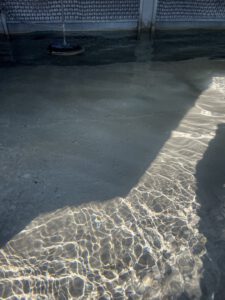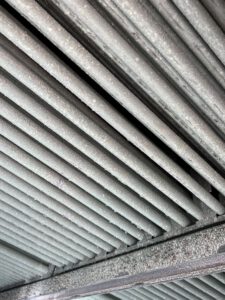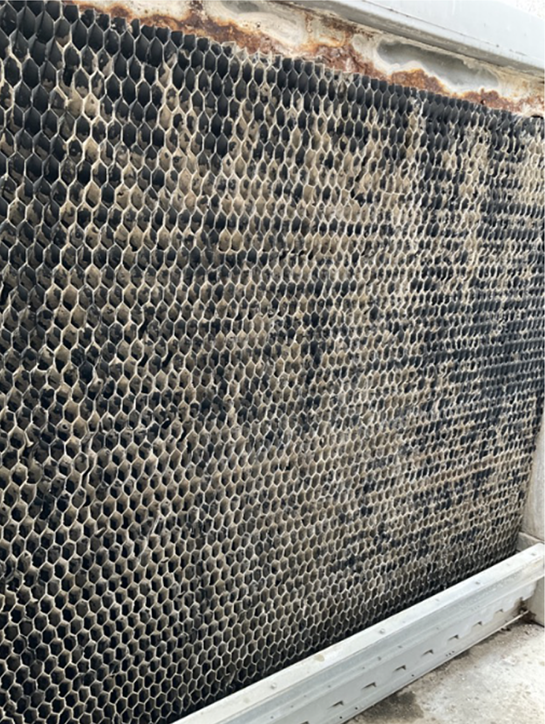Cooling towers play a vital role in various industries, facilitating heat exchange and maintaining equipment efficiency. However, an often overlooked problem—scaling—can wreak havoc on these systems. In this blog, we’ll explore how the buildup of scale in cooling towers can lead to under deposit corrosion and significant heat exchange efficiency problems.
Understanding Scaling in Cooling Towers:


Scaling occurs when minerals, such as calcium, magnesium, and silica, precipitate from water and accumulate on heat exchange surfaces. This buildup forms a layer of insulating material that can have severe consequences if left unchecked.
- The Formation of Scale:
Mineral-rich water, especially in hard water areas, is a common culprit for scale formation. As water is evaporated in cooling towers, minerals are left behind and gradually accumulate on surfaces.
- Insulating Effect and Heat Exchange Efficiency:
The primary role of a cooling tower is to efficiently transfer heat from industrial processes to the environment. However, scale acts as an insulator, inhibiting heat transfer and reducing the tower’s efficiency.
- Under Deposit Corrosion:
Scale buildup isn’t just a problem on its own—it’s closely tied to under deposit corrosion. The trapped moisture and chemicals beneath the scale layer create an environment conducive to corrosion, eating away at metal surfaces.
- Impact on Equipment and Efficiency:
As scale and corrosion work hand in hand, the consequences are twofold:
- Reduced Heat Transfer Efficiency: Scale insulates heat exchange surfaces, leading to increased energy consumption and reduced efficiency.
- Corrosion-Induced Damage: Under Deposit corrosion weakens metal surfaces, potentially leading to leaks, equipment failure, and costly repairs.
- Health and Safety Implications:
In industries where cooling towers support critical processes, inefficiencies and equipment failures could impact overall operations and worker safety.
Prevention and Mitigation:
Addressing scale-related efficiency issues and corrosion requires proactive measures:
- Water Treatment Programs:
Implement comprehensive water treatment programs that include chemical treatments to prevent scale formation. Scale inhibitors and dispersants can help keep minerals in suspension and prevent accumulation.
- Regular Monitoring and Cleaning:
Frequent monitoring of cooling tower performance is crucial. Regular cleaning and maintenance can prevent the excessive buildup of scale.
- Descaling Procedures:
When scaling is identified, adopt descaling procedures to remove existing scale deposits. Mechanical methods or chemical cleaning agents can be used under professional guidance.
- Corrosion Protection:
To combat underdeposit corrosion: Apply corrosion inhibitors that create a protective layer on metal surfaces. Consider cathodic protection techniques to prevent corrosion.
- Employee Training:
Educate personnel on the importance of water quality maintenance, early detection of scaling, and corrosion-related issues.
Scaling in cooling towers is more than just a cosmetic concern—it’s a catalyst for under-deposit corrosion and heat exchange efficiency problems. Ignoring these issues can lead to increased operational costs, decreased equipment lifespan, and even compromised safety. By understanding the relationship between scaling, underdeposit corrosion, and efficiency, and by implementing proactive prevention and mitigation strategies, industries can ensure the optimal performance of their cooling systems and maintain the integrity of their operations.




